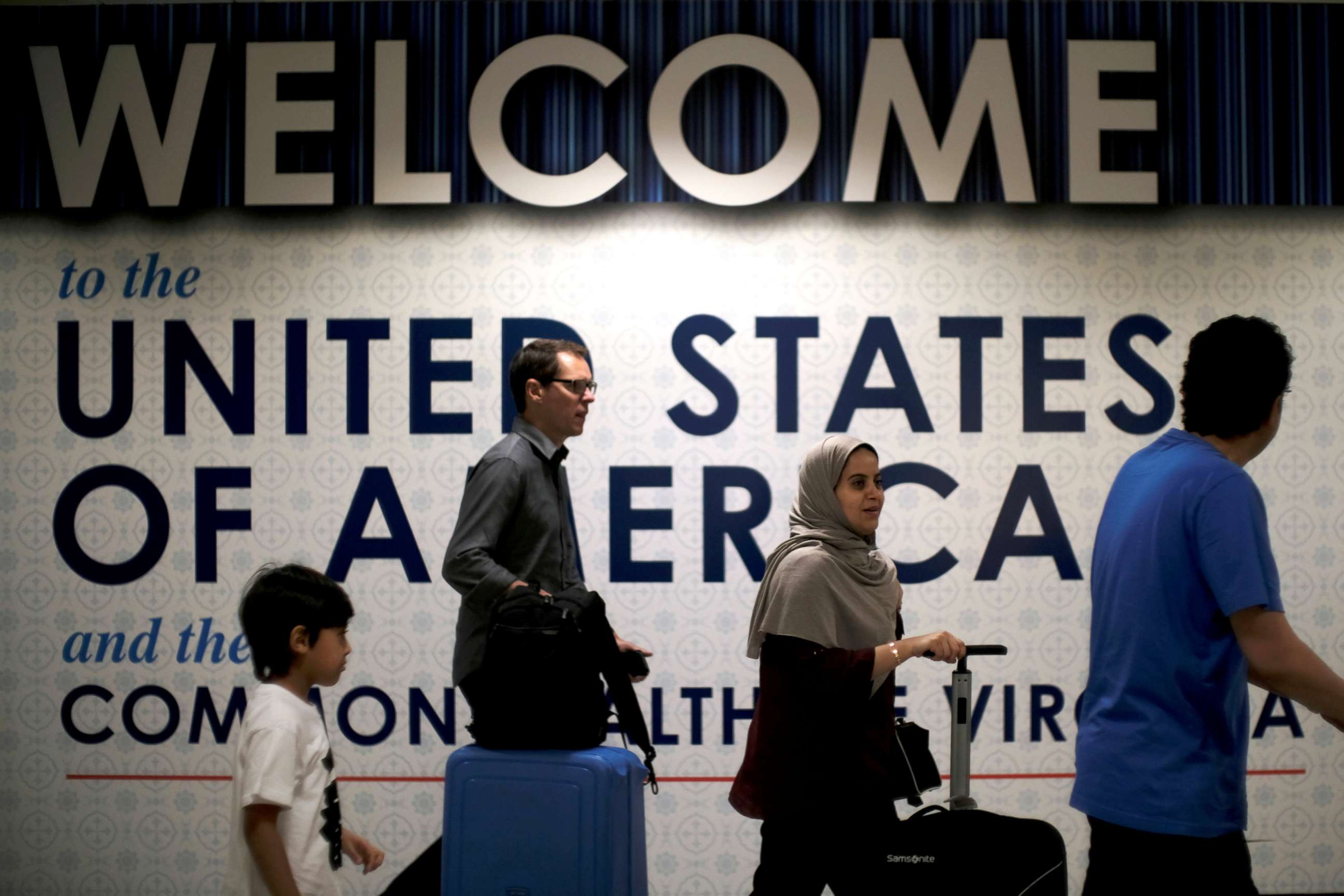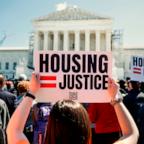How Trump's retweets about Muslims could thwart his travel ban
Experts weigh in on the president's video retweets.
— -- British Prime Minister Theresa May’s condemnation of President Donald Trump may not be the only fallout from his recent tweeting spree.
His retweeting this week of three videos purporting to show violent Muslims in the Netherlands could directly affect the outcome of his administration's proposed travel ban, two experts told ABC News today.
The videos "do nothing to justify the case for the need for expanded restrictions for those traveling from the countries included in the ban," ABC News consultant John Cohen said.
"The current proposed travel ban doesn't include people from the Netherlands, so it's unclear to me how this would support the argument for the administration's ban as proposed," Cohen, a former counterterrorism coordinator for the U.S. Department of Homeland Security, said.
The videos were originally published and shared by a leader of Britain First, a far-right organization widely condemned as an extremist group that targets mosques and Muslims.
In one of the videos, a man who is alleged to be Muslim is shown breaking a statue of the Virgin Mary. Another shows what it calls an "Islamist mob" pushing someone off a roof.
The caption of another video reads: "Muslim migrant beats up Dutch boy on crutches!"
The Netherlands Embassy in Washington, D.C., released a statement clarifying that no one in the video was a migrant, and the perpetrator was born in the Netherlands.
The proposed travel ban has gone through a number of legal hurdles and multiple versions, but the most recent iteration aims to restrict travel from six countries - Chad, Libya, Somalia, Syria, Iran and Yemen - and certain officials and individuals from North Korea and Venezuela.

Legal wrangling
Ben Wittes, a senior fellow at the Brookings Institution, said any impact from the retweets will depend on the outcome of the lawsuits opposing the proposed ban.
Wittes, who is also the editor of the blog Lawfare, said it is up to the individual judges in each case to decide whether they will consider statements made by Trump -- either during the campaign or after he assumed office -- as part of the respective legal cases.
Typically, such cases are determined by the administrative record, which is the term used for the supporting documents and evidence put forth by the Justice Department lawyers to defend their proposed action. Presidential statements are not necessarily included in the administrative record, but they also don't typically run counter to the record either, Wittes said.
"This is one reason why presidents are careful of what they say. Generally speaking, if it's outside of the record, it's not part of the discussion," Wittes said.
In Trump's case, "he's essentially contradicting the record. It's not something that happens very often,” he added.
If the judges decide to include presidential statements, which they did in the lawsuit issued March 15 by the state of Hawaii that temporarily blocked the second iteration of the travel ban executive order, there are a number of Trump comments that could be selected for consideration, Wittes noted.
"To the extent that a court wants to take into account presidential statements or tweets that reflect animus [toward Muslims], there was an embarrassment of riches before yesterday," he told ABC News.
Security concerns
The legal questions are not the only ones raised by the tweets. There are national security concerns that stem from how the tweets might affect ongoing and future national security operations, Cohen said.
"From a law enforcement and counterterrorism perspective, the president's retweets are highly problematic and potentially place the country at greater risk," Cohen said.
He noted four ways that the retweets could hinder U.S. security, including that they "may very well chill the vital cooperation" between Muslim Americans and law enforcement officials.
It could also affect Muslim allies abroad, and potentially "create a political complication for government leaders in Muslim-majority countries as they seek to cooperate with us on counterterrorism efforts."
By bringing the video of a far-right group to a global stage, Cohen said, Trump amplified and “endorsed the racist rhetoric of an ultra right-wing white supremacist group."
"That will not be lost on other violent white supremacist groups in the U.S. and abroad who may be incited to commit acts of violence because they believe the president supports their cause," Cohen said.
While no subsequent violence has been directly connected to Trump's retweets to date, former Ku Klux Klan leader David Duke made it clear that he appreciated Trump's postings, writing on Twitter Wednesday, "Thank God for Trump! That's why we love him!"
Another implication could be that the tweets are used as a form of propaganda by the terrorists Trump has vowed to defeat.
"This plays, it seems, directly into the narrative of groups like ISIS and al Qaeda who recruit individuals around the globe to join their cause by claiming the West is at war with Islam,” Cohen said, “so the president's retweets, I suspect, will be incorporated into ISIS and al Qaeda propaganda.”




